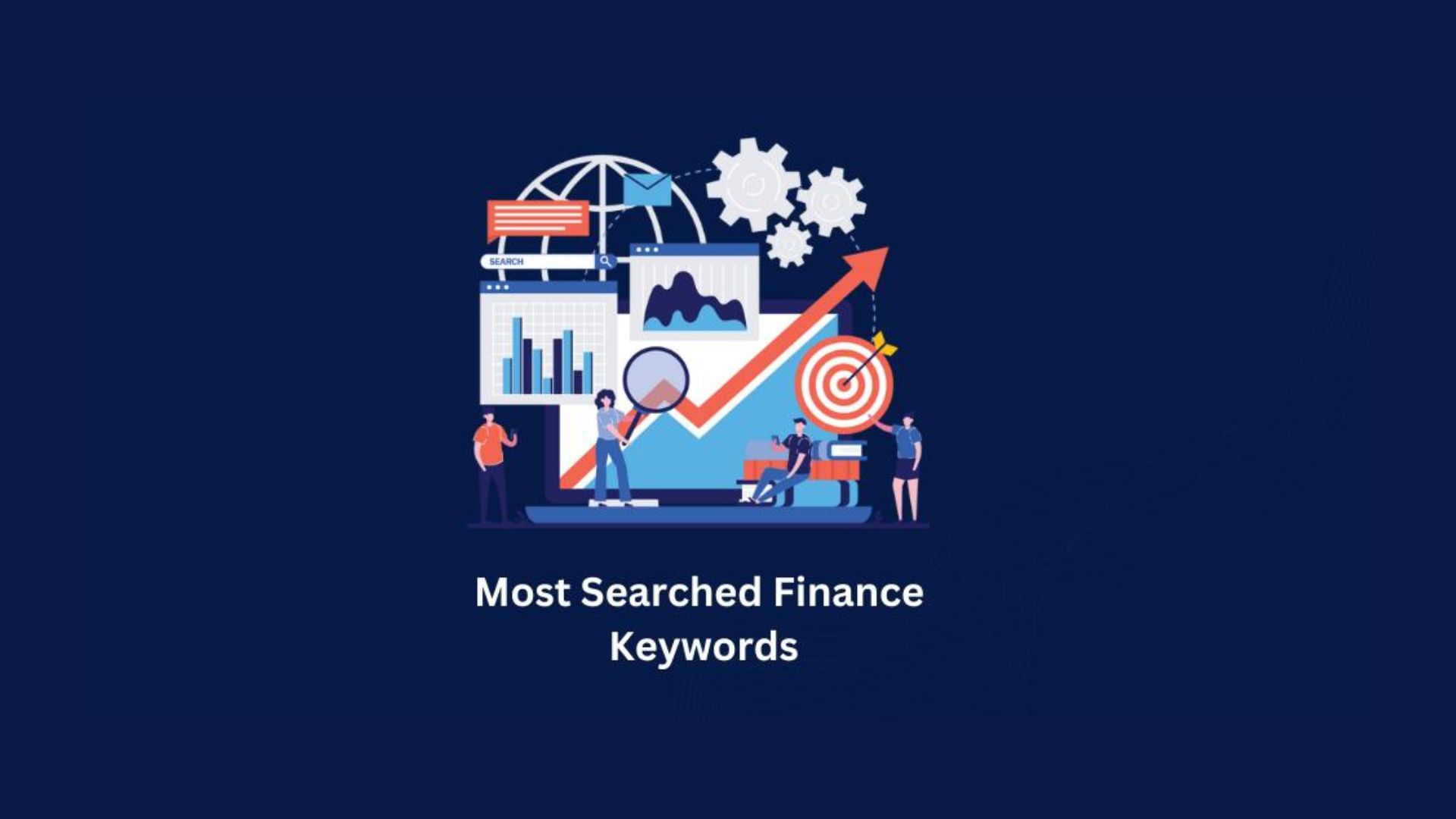
Every financial company needs a fantastic marketing plan that produces high-caliber leads. Any businessthat manages money is considered a financial corporation, including banks, credit unions, credit card companies, consumer finance organizations, accounting firms, stock brokerages, private lending companies, government-sponsored enterprises, and advisors.
Businesses in the financial sector must adjust and make efficient use of digital marketingas customer behavior continues to move toward online platforms in order to reach their target market.
Many people ask about how to do digital marketing for my financial-related business?This article aims to guide financial professionals and organizations on the intricacies of executing a successful digital marketing campaign tailored to the unique nuances of the financial sector.
Therefore, these techniques will be beneficial if you are prepared to go from conventional ineffective marketing to successful financial marketing that has the potential to provide a significant return on investment.
What Can Digital Marketing Do For Your Financial Related Company?
The everyday habits and tastes of modern customers are evolving with the increasing presence of ideas such as e-commerce and mobile technologies.
An increasing number of people are preferring to take care of their needs online. They use the internet for more than simply online shopping and social media communication with their loved ones.
The more used individuals are to operate remotely and digitally, the greater faith they have in the technology involved. Nevertheless, a lot of customers these days choose to handle their numerous accounts and money online.
They also use social media to look into new goods and services that could be able to satisfy their demands. However, a few suppliers of financial services are not taking full advantage of these developments;
- Taking a while to adopt social media marketing and realize the need to keep up a solid online presence across critical networks.
- Underestimating the potential extent and speed at which a positive or negative customer review might spread throughout the internet.
- Failing to adapt data management techniques to properly take into account information from consumer online activity, social media interactions, and other comparable sources.
- Failing to customize their offerings and methods of communication with clients sufficiently.
- Potential resources like video marketing are being used to annoy potential clients rather than to educate or amuse them.
- Failing to take full advantage of email marketing and communication channels to maintain client relationships.
Suppose you want to stay ahead of the competition. In that case, you must pay attention to the importance of vital elements like video marketing, individualized consumer outreach initiatives, and online word-of-mouth advertising.
Successfully adjusting to these developments means that financial services companies are doing more than just entering new markets. They're also more adept at keeping their present clientele satisfied and earning their continued business.
The Advantages Of Digital Marketing For Finance Companies
You can lose out on a sizable portion of your audience if you don't use digital marketing!
Utilizing a variety of online and digital tactics, digital marketing helps your financial institution reach its objectives. Now, let's discuss how digital marketing helps financial services.
Increase Confidence And Brand Awareness
You may start building trust with your current audience by concentrating on improving your customer service and customizing the client experience.
Financial services organizations may reap benefits from redesigning their website with the user experience in mind and concentrating on digital marketing areas like content marketing, email marketing, and social media marketing.
In order to increase name recognition, you will first create brand awareness and then expand on it. There is an innate sense of trust when leads perceive that they know your brand even if they have never done business with you.
To seal a conversion, you may keep establishing trust with your customers as they go through your process.
Engage Your Audience In Creative Methods
Though the financial services business may not be as enjoyable as retail, you can still discover creative methods to engage your audience with ongoing innovation if you have a better marketing plan.
This might be accomplished through your website, an email newsletter, captivating blog articles and whitepapers, an engaging social media campaign, or a highly customized drip email campaign.
Track How Your Audience Progresses Through The Sales Funnel
How does the typical consumer transform from a curious prospect into a devoted patron? As you start using digital marketing for financial institutions, you'll have a greater understanding of how leads are found and how they proceed.
Customers are more likely to stay around until they convert and then for a considerable amount of time afterward if you can better satisfy them as they move through the sales funnel.
Generate New Leads
Your financial services business will see an increase in traffic to its website and social media pages as it places a higher priority on digital marketing. Your email list may start growing.
A greater conversion rate may result from some of the leads that find you being more qualified from the start.
Increase Customer Conversion
Speaking about conversions, gaining new clients, and expanding the business are financial services businesses' main objectives. Financial firms may target specific demographics and customize campaigns for optimum impact with the help of digital marketing.
Businesses may improve client acquisition, boost lead generation, and optimize conversion funnels using data-driven tactics. Digital marketing guarantees a smooth and convincing consumer experience via the use of persuasive call-to-action buttons and tailored content, which eventually increases conversion rates and propels financial success.
Trust And Credibility
In the financial industry, establishing trust is essential, and digital marketing is crucial. Credibility is enhanced by informative material, customer endorsements, and thought leadership articles shown on a business website.
Social media involvement and frank communication further reinforce trust. In an industry where trust is paramount, financial organizations may create a reliable digital footprint by engaging in pleasant and regular online interactions. This will reassure existing clients and draw in new ones.
Digital Marketing Strategies For Finance Businesses
Build Trust And Brand Awareness Using Social Media
One of the finest methods to market your financial services company and get the confidence of clients and consumers is through social media. Every significant participant in the financial services sector maintains a highly active social media presence.
Still, coming up with something to share might be challenging at times. Researching hashtags is one of the finest ways to launch a successful social media campaign.
Hashtag Research For Financial Companies
In order to produce trending, valuable, and relevant posts for your business, hashtag research assists you in identifying and evaluating the most popular hashtags on Twitter and Instagram.
Related hashtags and Instagram autocomplete are two of the most excellent free resources for researching hashtags. With the help of these tools, you can quickly identify popular subjects to focus your writing on.
A social media account with a ton of active participation that helps generate visitors to your website and social media postings that people need to see may be distinguished by their hashtag usage.
But it's crucial to keep in mind that, even with hashtags, moderation is key. In fact, three to five hashtags are the sweet spot for Twitter, whereas Facebook hashtag results start to deteriorate after only one usage.
You can only use a certain amount of hashtags on some platforms. There is a maximum of thirty for Instagram, but there are no restrictions for LinkedIn. What should you publish on social media to attract clients once you've completed your hashtag research?
Knowing What To Share On Social Media
Sharing blog content is a fantastic choice. The material of financial services organizations' blogs appears in most of their social media posts. In this manner, they may establish their authority, aid in public education, and boost website engagement all at once.
Social media is essential for financial services organizations, regardless of how they choose to use it.
Create A Credible Website
For financial organizations, the foundation of their digital marketing strategy is a well-designed, user-friendly website. It serves as a virtual shop, giving potential customers and clients a first-hand sense of legitimacy and expertise.
Make sure the website is mobile-friendly, has easy-to-use navigation, and offers precise details about the services it offers. Use strong calls-to-action (CTAs) to direct visitors to the intended actions on your website, such as contacting the business, signing up for newsletters, or accessing resources.
Optimization For Search Engines
The goal is to appear as high as possible in search results on sites like Google and Bing. Your chances of getting organic (free) traffic to your website increase with ranking.
More traffic indicates that more people might be aware of your brand and offerings. This channel for digital marketing is divided into three sections;
On-page SEO
On-page SEOcontent on the pages of your website is the main emphasis. Look up terms that fit your buyer profile or terms that prospective customers could query. The goal is to answer such queries with high-quality content so that your sites appear higher in search results.
Off-page SEO
Any activity that takes place off of your website is related to Off-page SEO. It alludes to inbound links that point to your website's content. The more websites that link back to your material sometimes referred to as backlinks, the higher the rating. These websites' authority and quality also influence your ranking.
Technical SEO
Technical SEO focuses on your website's back end. Things such as CSS (cascading style sheets), picture compression, and coding. The speed at which these crucial elements of your website determine your page's load. Google and other search engines utilize it as a critical ranking element.
Paid Advertising (PPC)
With pay-per-click (PPC) advertising, financial companies may target particular demographics and keywords to make sure the right people see their adverts. To increase visibility, write ad language that is appealing and use targeted keywords. Regularly track and evaluate PPC campaign performance to maximize return on investment.
Email Marketing
Financial organizations may still nurture leads and sustain customer connections using email marketing. Build an email list using website sign-ups and other opt-in approaches. Provide pertinent and individualized material for newsletters, updates, and marketing communications.
By ensuring that clients receive information that is specifically customized to their needs, segmentation can help to improve targeting. To improve the next campaigns, monitor key performance indicators such as open and click-through rates.
How Can Financial Companies Assess The Performance Of Their Digital Marketing Campaigns?
Finance organizations may assess the success of their digital marketing activities through several key performance indicators (KPIs). Among the crucial KPIs to monitor are;
Return On Investment (ROI)
By comparing the money earned by a campaign to its related expenditures, the success of the campaign is determined. A favorable return on investment shows the effectiveness of digital marketing efforts.
Website Traffic And Conversion Rate
Evaluating the success of digital marketing initiatives is aided by monitoring website traffic and the proportion of visitors who complete desired actions, such as completing a form or making a purchase.
Cost Per Acquisition (CPA)
This statistic aids in comprehending the price of bringing on a new client. Ensuring that the acquisition cost is no more than what the client pays for the goods or services is crucial.
Customer Lifetime Value (CLV)
This measure aids in determining the approximate total income that a company might anticipate from a particular clientele.
Social Media Engagement
Monitoring social media platform engagement metrics like likes, shares, and comments provides valuable information about how well social media marketing campaigns are working.
Frequently Asked Questions
Why Is A Professional Website Essential For Digital Marketing In The Financial Sector?
A professional website establishes credibility, serves as a virtual storefront, and offers a positive first impression for potential clients.
What Is The Significance Of SEO In Digital Marketing For Financial Businesses?
SEO boosts online visibility by optimizing website content for search engines, increasing organic traffic, and attracting qualified leads.
What Is The Primary Goal Of A Digital Marketing Strategy For Financial Businesses?
The primary goal is to establish a solid online presence, attract qualified leads, and build lasting client relationships in the digital age.
Conclusion
Many ask queries about how to do digital marketing for my financial-related business? Mastering digital marketing is imperative for the sustained success of financial-related businesses in the dynamic online landscape. A cohesive strategy combining a professional website, SEO optimization, content marketing, email campaigns, social media engagement, and targeted advertising can elevate a financial business's online presence.
By adapting to changing consumer behaviors, establishing trust through valuable content, and utilizing data-driven insights, these businesses can not only survive but thrive in the digital age.
As technology continues to shape the financial industry, a well-executed digital marketing plan becomes not just an option but a strategic necessity for those aspiring to excel in the competitive financial sector.



